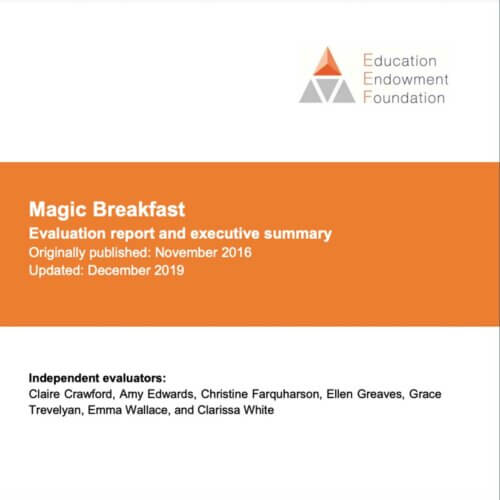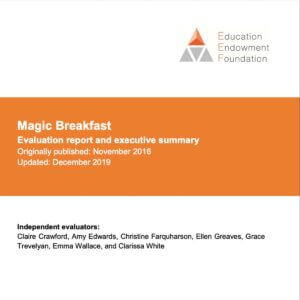The Magic Breakfast project provided schools with food, support and advice to offer a free, universal, breakfast to all pupils. The aim of the project was to improve attainment outcomes by increasing the number of children who ate a healthy breakfast.
At the time of funding this project there had been considerable interest in school meals, including the introduction of universal infant free school meals and breakfast club pilots in England, and new policy on breakfast provision in Wales. The Education Endowment Foundation (EEF) funded this project because despite the policy interest, there was limited evidence of the impact of breakfast clubs on attainment. This study was a control group study.
Evaluation Conclusions
- Year 2 children in breakfast club schools made the equivalent of two months’ additional progress compared to Year 2 children in the business as usual control group.
- In schools offering breakfast attendance also increased, with 26 fewer half-days of absence per year, in a class of 30. The study also shows that there was a small reduction in late arrivals.
- The findings suggest that it’s not just eating breakfast that delivers improvements but attending a breakfast club. This could be due to the content of the breakfast itself or to other social or educational benefits of the club.
- Results from a teacher survey showed that pupil behaviour improved in breakfast club schools. This is interesting because it shows that breakfast clubs may improve outcomes for children who do not even attend breakfast club by improving classroom environments.
- Activities thought to increase take-up of the breakfast at school included promoting it to parents and encouraging all children to attend while sensitively targeting pupils most likely to benefit. The project required additional staff time which some schools found difficult to provide without charging for breakfast.





